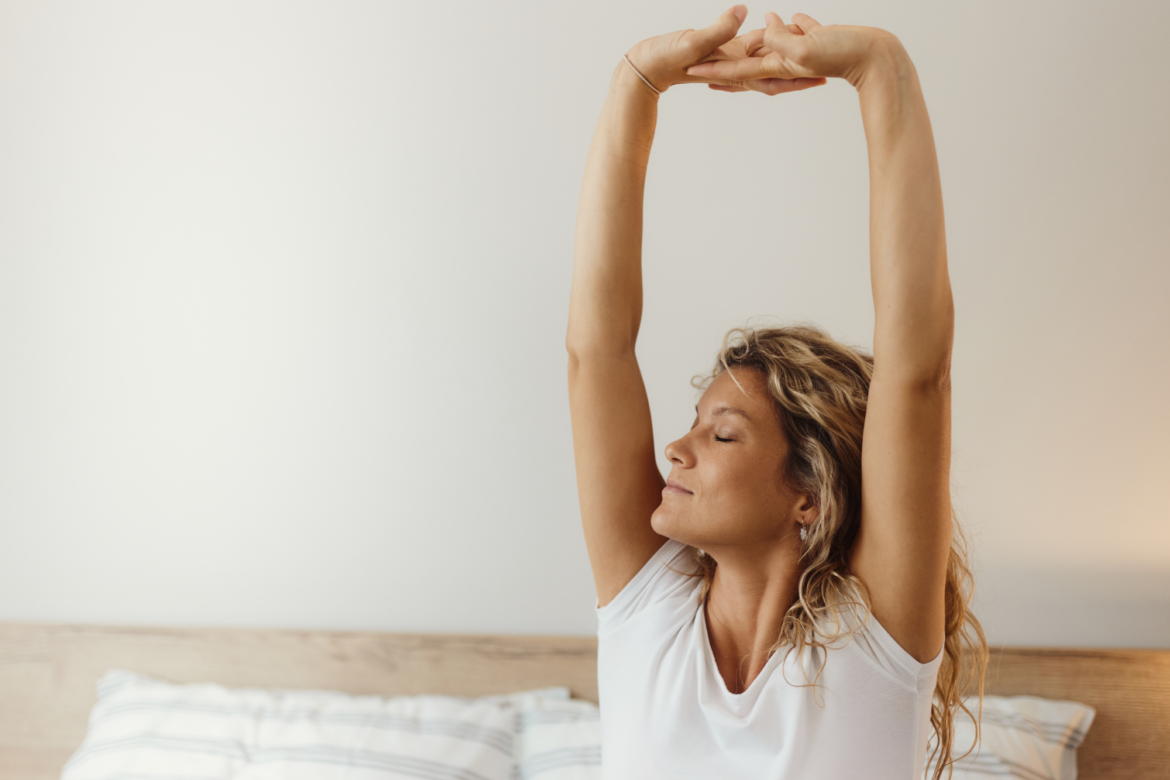Tips for a Better Night’s Sleep
Did you know that sleep is one of the best ways to help the body recover? Sleep plays a crucial role in performance and recovery by decreasing cortisol levels (the body’s stress hormone) and allowing growth hormone to begin repairing muscle tissue. It also contributes to decreasing pain. Currently, research suggests that poor sleep quality contributes to pain more than pain contributes to poor sleep quality. Here are tips for a better night’s sleep.
A poor night’s sleep is one of the most frustrating experiences one can wake up to. How, though, can you improve your sleep quality? Check out this list of suggestions to improve your sleep at night:
Science Behind Sleep Positions
-
- The consensus is that back or side sleeping is better than stomach sleeping
- Stomach sleeping can contribute to neck pain due to prolonged positioning and jaw pain due to increased compression and shifting of the joint
- Side sleeping is often recommended for people who snore at night as it helps the airway remain open
- Back sleeping is often recommended for people with pain at the side of their hip to decrease compression forces the body experiences when lying on its side
The Sleep Position for You
-
- Whatever is most comfortable! If you aren’t comfortable, you won’t stay asleep
- A lower frequency of turning often leads to more restful sleep
- If you have chronic jaw or neck pain, avoid sleeping on your stomach
- If you sleep on your side, consider adding a pillow between your legs to support your thigh bone
Sleep Hygiene
-
- Try to go to bed at the same time each night and wake up at the same time each morning. This allows your body to create a regular sleep schedule to get the most out of your REM sleep (rapid eye movement)
- Avoid screens 1 hour before bed
- Create an environment that is free from loud noises, bright lights, and other distractions that could wake you up at night
- Avoid consuming any liquids 2-3 hours before going to bed to prevent being woken up by the urge to use the restroom
Other Considerations
-
- Mattress
- Again, whatever is comfortable is best so that you can stay asleep
- Some research suggests that firmer mattresses improve sleep quality and comfort, especially in people with low back pain
- Number of Pillows
- More is not always better – try to limit the number of pillows you put under your head or neck to help keep your cervical spine in a relatively neutral position
- You can add pillows under your hips if you need or like extra cushion when sleeping
- Pregnancy
- Avoid sleeping on your back as you reach trimester 2-3 to maintain good abdominal blood flow so your body continues to get the necessary amount of oxygen it needs
- Consider the usef of pillows to prevent you from sleeping on your back if this is your preferred position
- Mattress
Try out these tips tonight when you settle into bed to work on improving your sleep quality and taking back your life! Schedule a visit with one of our therapists at Freedom Physical Therapy Services to learn more.


Your information is very useful to me. Thank you.